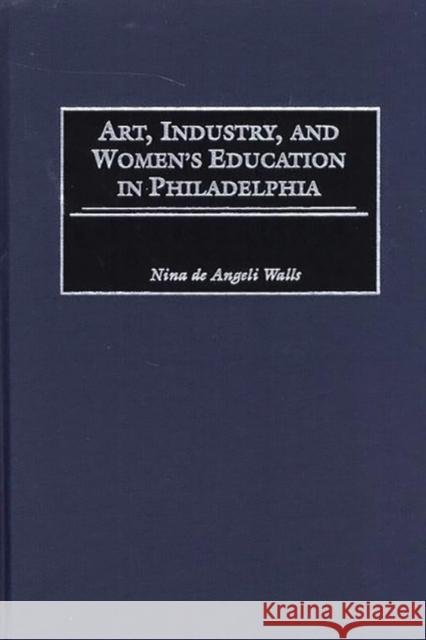Art, Industry, and Women's Education in Philadelphia » książka
Art, Industry, and Women's Education in Philadelphia
ISBN-13: 9780897897457 / Angielski / Twarda / 2000 / 208 str.
Separate education for American women in the arts began in the mid-19th century as an innovative vehicle for middle-class women to move into a new and genteel profession. The 20th century evolution of the Philadelphia School of Design for Women, lone survivor as an autonomous school of many similar institutions founded at the same time, presents an unusually well-documented case study of meeting the changing needs of women students.
The first American institutions devoted to women's professional art education, design schools appeared in industrial northeastern cities in the 1850s, modeled on Philadelphia's pioneering School of Design for Women, which opened in 1848. Sponsored by business leaders and philanthropists, design schools gave women unprecedented access to craft skills, and eventually helped professionalize the work of women as art teachers and practicing artists. Separate education in the arts constituted an innovative vehicle for expanding Victorian-era middle-class gender prescriptions into new professional opportunities. Through the 20th century, the Philadelphia School of Design and its successor, Moore College of Art, survived as the nation's only autonomous women's art college, offering new educational options for women.











